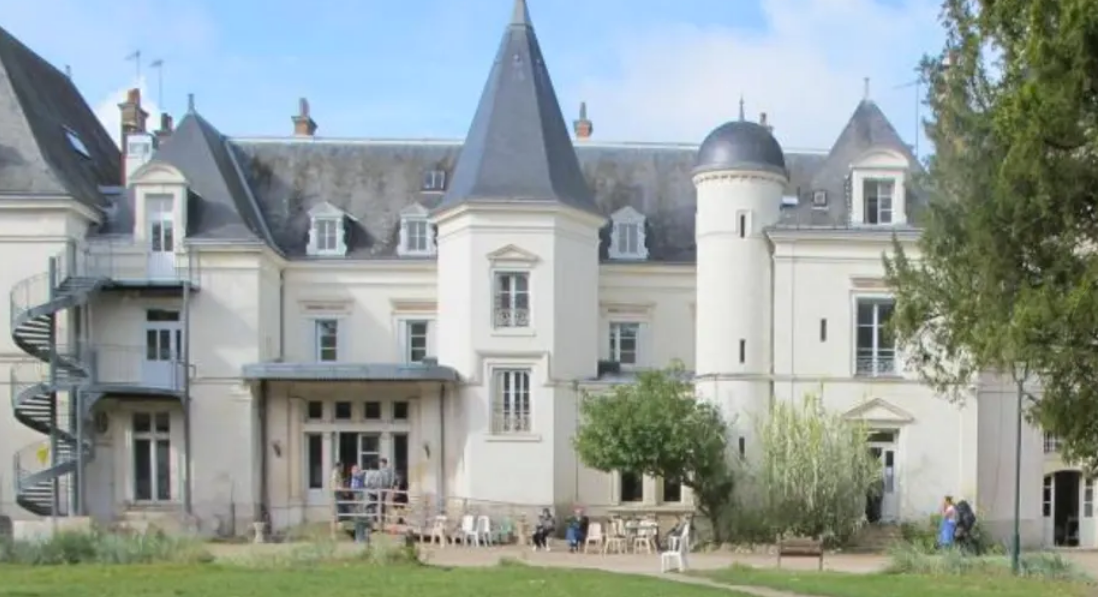The History Of CERFI
By François Fourquet
CERFI was founded in 1967 as a way of finding finances to a federative organization, the Fgeri (Fédération des groupes d'études et de recherches institutionelles), through social research based on contracts. Fgeri and its review Recherches were created in 1965 in order to form a liason – through a space, a periodic publication, and a network of encounters – between activist in different fields of social work: psychiatrists, psychoanalysts, health care personnel in the movement of ”institutional psychotherapy," teachers and education staff specialized in ”institutional pedagogy," architects, doctors, researchers, students, etc.
This association, whose driving force was an activist group led by Félix Guattari and connected to the La Borde clinic, had an original political inspiration. In opposition to the sclerotic apparatuses of the communist party and the Leftist organizations, in opposition to those activist that were fascinated and hibernated by these apparatuses (the polit bureau, the central committee, the cells on ground level, etc), the issue was to form a new type of activists whose capacity would not be to form a a party, but rather a network of autonomous groups that would discuss and act together, and also be able to recognize and affirm their unconscious drives, since the negation of these drives was for us the main reason for the political impasses of Leftist groups. It was in this field that we located the secret of the synthesis between Marx and Freud that had been sought in vain for many years by a whole generation of intellectuals. This was a practical and not a theoretical synthesis, for the most elegant intellectual synthesis had no value for us if it wasn't accompanied by a metamorphosis of the libidinal economy of the revolutionary activist. Up to then, we had seen two models, the Social-Democratric (SFIO) and the Bolshevik, of which militant Maoists at the beginning of the 70s were to incarnate the most modern version. We rejected the weakness of the first and the ”tight-ass” attitude of the other, and sought for something else: we loved life just as much as the revolution!
La Borde Clinic.
This is why we already in the first days of May 68 felt ourselves to been on the same level as the March 22 Movement, the initiators of the revolt, and many of us merged with them. Our political originality was dissipated and we were absorbed into the new generation stemming from May 68: henceforth our problems were no different than those of many other movements proliferating after May outside of the established political framework: they sought to pose and solve the question of life instead of speculating on the reconstruction of the revolutionary party of the future. The very idea of the revolution didn't have the same meaning, if it ever had!
But the effervescence of 68 came to and end and we had to survive. We were no longer students, and just as many other old activists that felt a sacred repulsion before power, we entered into research; once activists, we were now wholesale intellectuals. We have already explained ourselves regarding this shift, and the moral problems brought up by our Maoist inquisitors. It is true that the intellectual has his own problems in relation to power; but as I see it, there more he denies the existence of these problems, the more he is subjected to the power he denounces. I even propose: the more the intellectual denounces power, the more he desires it, and the more he misunderstands his own desire. There exists between the intellectual and the man of the State (civil servant or politician) a profound, although complex, complicity; and writing this essay has provided me with the occasion to probe some of the obscure recesses of this complicity.
Be that as it may, towards 1971–72 we managed to convince some highly placed civil servants and we could get contracts that could sustain a group of approximately twenty people for 4–5 years. Within a few months, we acquired a certain fame in the milieus of research and administration by diffusing our ideas of desire, demand, public institutions, production, and the State. The civil servants were not at all upset by the critique we leveled at the State—and the reason for this was that the first critics of the State were these servants themselves! And they demanded more ”research” of us, in such a way that we were more and more led to place the State at the center of our reflections, which profoundly disturbed our ways of thought, that at the time were strongly marked by Marxism. Marx, as is well known, was never really concerned with the State; he said he would deal with it one day, but he was too captivated by the couple proletarian/bourgeois to seriously interrogate this sector which is neither capital, work, production, or circulation. And Marx's successors mostly limited themselves to rehearsing old formulas such as ”the State, an instrument of the bourgeoisie," etc; and the exegetic work of the 60s, that endlessly and ruthlessly scrutinized Marx (the young, the mature, and the old) were of strictly no use to us. On the other hand, thinkers that came from a wholly different horizon, above all Deleuze and Foucault, helped us get off the beaten track by acquainting us with Nietzsche, his genealogy of morals, and the will to power.
Félix Guattari.
From this period (1969 –1972) dates the encounter and collaborative work of Guattari and Deleuze, that was to give birth to a original and forceful thought, whose first masterwork was Anti-Oedipus. In the same year, we completed and published a series of large research projects that all had the State as both its subject and as interlocutor. We started to see the problems of society from the point of view of the State, which also ended up by posing serious problems of identity for many among us. We sketched out a consistent theory of the State; our ideas were fermenting; we took them from here and there, and occasionally we also had some new ones! For we began to have an experience of the State, and not only a dogmatic idea; for years we freque ted men of the State, and more and more we perceived the drives that animate them and understood the ideas that motivated them. We didn't construct a homogenous doctrine; each one of us worked from his own angle; but there is a family resemblance between these ideas at that precise moment when they start to diverge.
It is true the CERFI at the same time started to break up on the personal level. Before we were a group of researchers, we formed a collective enterprise, a dense environment bound together by love and torn apart by hatred. We wanted to use group psychoanalytical techniques to overcome our affective impasses and solve our power conflicts. We were not always capable to do this! In 1974, in order to relieve a collective tension that had become too big, it was decided that two of us should be entrusted with the task of institutionalizing the centrifugal tendencies of CERFI. We created one, two, several small CERFIs, legally and financially autonomous, that would each find their means of survival, and take care of their own facilities and accounting. The only thing in common was the review Recherches.
Soon after, in 1975, the government decided to put and end to the contract-based research that we had been living on, and to integrate a limited amount of accepted researchers into the CNRS [Centre National de Recherches Scientifiques]. Instinctively we knew that this integration was tantamount our death warrant. If we became civil servants, we would lose the decentralized network that had set up its own rules, its own ways of conflict handling, and above all its own financial autonomy. In public we took a hostile stance against this politics of integration by expressing our suspicion against a enormous and unique public apparatus of social science research: this apparatus would no doubt trap the individual researcher in career problems inside a scholarly hierarchy, and by exerting a quasi-monopoly on financing it would inevitably render our research sterile and turn it into a kind of Academy of Social Science.
Step by step the financial abundance that up to 1976 had been the precondition for CERFI’s intellectual vitality dried up. Contracts became rare and slim. It was clear that the State had decided to once and for all suppress all ”contract based research," together with those study groups like us that lived off of it. The future was sombre, and some of us demanded to be integrated into the CNRS. Despite the value of their works, the CNRS did not even care to respond. The mere fact of once having belonged to CERFI, if only for a short time, was a sufficient cause for not being integrated. And after all, this was only logical: the CNRS made us know that we could not eat the soup that we had once rejected. We had to pay individually for our collective resistance against the politics of centralization of social research. And still this resistance has to do with politics: it comes from that type of liberalism that appeared among the Left after May 68, and that took over liberal themes that since the nineteenth century had been the heritage of the Right. Very few would today publicly and without reservation call for an expansion of the State; which, on the other hand, does not prevent it form growing every day.
Unemployment became imminent, and we had to find individual solutions: run like rats after those contracts that were still possible, just as artists gave lessons in people's homes in times of crisis; find a teaching job whose subject was close to our research; or finally just change profession. Since two years, each one has been for himself. In fact, the politics of integration of the CNRS has accentuated the spontaneous tendency of CERFI toward self-fragmentation. Today there is no longer a central CERFI; its substance has been emptied out in favor of associated offsprings, and it is nothing more than an empty shell managing the closing of the accounts. Since there is no longer any central money in CERFI, the only reunions that take place have to do with liquidation. We still love each other, but have very few things left in common.
One of these things is the review Recherches, that for more than ten years has published our ”social research” in the professional sense of the term, but also permitted several groups or networks wholly independent of CERFI to express themselves freely through the creation of a special issue of the review. Recherches continues, and it once more finds political inspiration from the 60s: to serve as a concrete support and a public tribune for scattered groups of researchers and practitioners united by a common sensibility.
François Fourquet (1940-2016) was a French economist, professor of economics at University of Paris VIII. Among his publications: Richesse et puissance: Une généalogie de la valeur, XVIe-XVIIIe siècle (1989) and La naissance des villes nouvelles: Anatomie d’une décision, 1961-1969 (2004).
The above text taken from the introductory section in L'accumulation du pouvoir, ou le désir de d'État: Synthèse des recherches du Cerfi de 1970 à 1981, Recherches no. 46, September 1982, 9-13. Translation by Sven-Olov Wallenstein.



